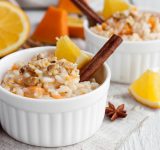In the world of sports, nutrition is often an afterthought where many athletes instinctively grab a few sugary energy bars on their way out the door, fill bike bottles with fluorescent electrolyte water and excessively carbohydrate load before a big training or race day. It’s not their fault – as a culture, we’ve been fed bogus recommendations for many years – due in part to fat phobia and the funds that support the sugar industry.
In America and many parts of the world, we have an obesity epidemic. Contrary to popular belief, this health crisis affects athletes just as much as other individuals. An excess in sugary beverage and food products combined with a low emphasis on a recovery diet causes not only excessive fatigue but unnecessary weight gain. Even Ironman participants may be carrying around 10-50 pounds of weight, despite training upwards of 25 hours a week!
Let’s focus on the following 5 areas of nutrition. These can not only help us maintain a healthy weight but give us energy on and off the race course. Eating within the guidelines below is sure to reduce recovery time, so you can get back to training and racing more quickly!
Focus on These 5 Areas of Nutrition
- Diversify Your Diet
Plants. Nuts. Seeds. Meat. Liquids. Mushrooms. Add as much color as possible to your diet through a variety of foods. This will maximize bioavailable nutrient exposure and extract nutrients for stable energy. - Eat for Recovery
Dark, leafy greens, omega-3 sourced foods (chia seed, salmon, etc.), superfoods (spices, herbs, or green powders), ginger or mint herbal tea, collagen-rich bone broth, and chlorophyll-rich sea vegetables shorten recovery time, making it easier to maintain a regular training schedule. - Hydrate with pure, filtered water
Think of water being the ‘river which flows nutrients through the body’; all of the diverse, healthy foods you’re eating won’t get far if you aren’t hydrating properly. Keep daily requirements simple with the following calculation for minimum intake: body weight in pounds divided by 2 = minimum ounces per day. - Eat for steady blood sugar (in other words: eat less sugar + more healthy fats + protein!)
Healthy carb choices: Asparagus, artichokes, bell peppers, blackberries, blueberries, broccoli, Brussels sprouts, cauliflower, celery, cucumber, chard, collards, endive, garlic, green beans, kale, lettuce, mustard greens, mushrooms, onions, pea pods, radishes, raspberries, spinach, strawberries, and zucchini.
Healthy fat choices: coconut butter/oil, olive oil, grass-fed butter, avocados, nuts, flax, hemp, and sesame.
Healthy protein choices: organic chicken thighs, organic eggs, grass-fed beef, wild salmon, lamb, and pork. - Eat mindfully. To maximize digestion and not overeat, take 5 deep breaths before eating at each meal.
Originally posted 2018-07-06 08:59:39.







